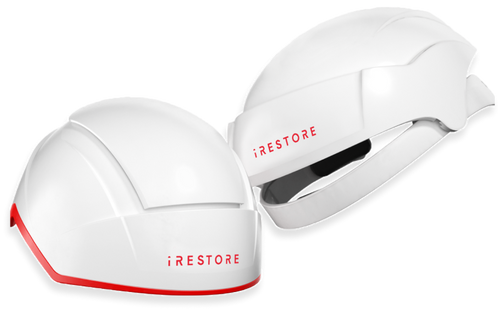A lot of people have been there. You know, that uncomfortable, itchy scalp feeling or thinking that people can see those tiny white flakes in your hair.
Well, we’re here to tell you...don’t be embarrassed! Almost everyone has experienced a dry scalp or dandruff. However, it is vital to understanding the underlying issue of what’s causing the problem and distinguishing between the two.
Sometimes people suffer from just one condition, but people can often suffer from both. Today, we’ll look at each state in-depth to have a better idea of what you may be going through. And we’re not doctors, so we recommend getting advice from a dermatologist to help properly analyze any problems you think could be more serious.
Dandruff vs. Dry Scalp: Causes and Symptoms
Ultimately, a dry scalp can lead to the presence of dandruff; however, the two conditions are separate. And understanding the differences between the two can assist when selecting the correct treatment.
Dandruff
Dandruff creates flakes at the scalp that you’ll often see in your hair or on your clothes and can be the result of a fungal or scalp infection, oils being secreted by the scalp, or sensitivity to substances like hair products.
Your skin sheds dead skin cells, and your scalp is no different. Dandruff flakes are dead skin cells, and the quicker the scalp sheds skin cells, the worst dandruff is. Dandruff flakes are on the larger side and may be yellow or look oily.
And if your dandruff is due to a fungal treatment, you’ll likely need specific treatment. Certain scalp conditions like psoriasis and seborrheic dermatitis can look very similar to dandruff. So, if you are experiencing other symptoms, such as redness, sores, or open wounds on the head or face, you should consult with a doctor.
Factors such as infrequent shampooing, diet, weather, stress, and hormonal fluctuations can also affect the presence of dandruff.
Dry Scalp
On the contrary, a dry scalp occurs when the scalp doesn’t have sufficient oil for the skin to feel moisturized. This can lead to flaking, itching, irritation, and a dry appearance.
People that tend to have dry skin are more likely to experience a dry scalp, and things like dry air, excessive washing, or skin conditions like eczema can play a factor. Flakes associated with dry scalp tend to be more petite, white and can likely improve without treatment.
Nutritional deficiencies can, too, lead to a dry scalp, and not getting optimal amounts of specific vitamins in your diet can cause dryness. For this, we recommend our delicious Biotin Vitamin Gummies, which are made with natural ingredients and filled with vitamins like biotin and vitamin C, along with the fatty acids that your hair desires.

Treatments Available
Ok, now that we know the symptoms and causes of dry scalp and dandruff, let’s dive into some ways to help you treat these conditions!
Factors such as haircare play a role in having a dry scalp, and processes like blow-drying, chemical straightening, or haircare products can lead to dryness, so it’s essential to find trusty products. For dandruff, certain shampoos will help treat itching and flaking. At iRESTORE, our Thickening Duo revitalizes hair follicles and gently moisturizes the dry scalp while strengthening dry hair.
Using a scalp treatment before your shampoo can also help minimize dandruff and can control bacteria overgrowth.
It is also recommended to keep track of what you’re eating. Removing certainly added sugars, bad fats, dairy, and processed foods from your diet could help decrease the presence of dandruff.
For a dry scalp, it’s important to drink a lot of water to help level out the moisture in the scalp. And foods rich in antioxidants like berries, avocado, salmon, and ginger (to name a few) help lessen inflammation, which helps with itching.
Also, it’s important to restore moisture by applying products that have moisturizing and antibacterial properties to combat dryness.
Red Light Therapy (RLT) can also help treat certain skin conditions like psoriasis. Our FDA-cleared Elite, Professional and Essential devices are equipped with medical-grade lasers and LEDs to deliver more power and light energy than other comparable devices.
Ultimately, dry scalp and dandruff can be aggravating but aren’t harmful and usually go away with treatment. But, as mentioned earlier, if you’re experiencing irregularities and you don’t see the changes you want, we recommend consulting a doctor to understand your options better.
Join us on Facebook Groups for more hair loss tips. https://t.jo.my/irestore-fb-group















